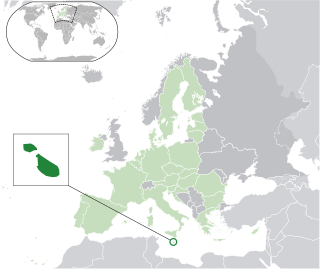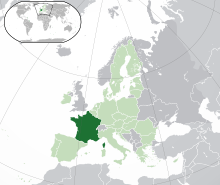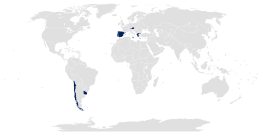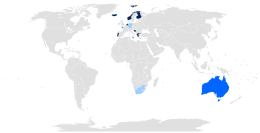Sex assignment is the discernment of an infant's sex, usually at birth. Based on an inspection of the baby's external genitalia by a relative, midwife, nurse, or physician, sex is assigned without ambiguity in 99.95% of births. In the remaining cases, additional diagnostic steps are required and sex assignment is deferred. Sex also may be determined prior to birth through prenatal sex discernment.
Herculine Adélaïde Barbin, later known as Abel Barbin, was a French intersex person who was assigned female at birth and raised in a convent, but was later reclassified as male by a court of law, after an affair and physical examination. She is known for her memoir, Herculine Barbin, which was studied by Michel Foucault. Their birthday is marked as Intersex Day of Remembrance.

Human rights in France are contained in the preamble of the Constitution of the French Fifth Republic, founded in 1958, and the 1789 Declaration of the Rights of Man and of the Citizen. France has also ratified the 1948 Universal Declaration of Human Rights, as well as the European Convention on Human Rights 1960 and the Charter of Fundamental Rights of the European Union (2000). All these international law instruments take precedence on national legislation. However, human rights abuses take place nevertheless. The state of detention centres for unauthorized migrants who have received an order of deportation has also been criticized.

The Organisation Intersex International (OII) is a global advocacy and support group for people with intersex traits. According to Milton Diamond, it is the world's largest organization of intersex persons. A decentralised network, OII was founded in 2003 by Curtis Hinkle and Sarita Vincent Guillot. Upon Hinkle's retirement, American intersex activist Hida Viloria served as Chairperson/President elect from April 2011 through November 2017, when they resigned in order to focus on OII's American affiliate, OII-USA's transition into the independent American non-profit, the Intersex Campaign for Equality.

Intersex people are individuals born with any of several sex characteristics including chromosome patterns, gonads, or genitals that, according to the Office of the United Nations High Commissioner for Human Rights, "do not fit typical binary notions of male or female bodies".

Herculine Barbin: Being the Recently Discovered Memoirs of a Nineteenth-century French Hermaphrodite is a 1980 English-language translation of Herculine Barbin's nineteenth-century memoirs, which were originally written in French. The book contains an introduction by Michel Foucault, which only appears in the English-language translation of the memoirs. Foucault discovered Barbin's memoirs during his research about hermaphroditism for The History of Sexuality.

Intersex civil society organizations have existed since at least the mid-1980s. They include peer support groups and advocacy organizations active on health and medical issues, human rights, legal recognition, and peer and family support. Some groups, including the earliest, were open to people with specific intersex traits, while others are open to people with many different kinds of intersex traits.

The International Intersex Forum is an annual event organised, then later supported, by the ILGA and ILGA-Europe that and organisations from multiple regions of the world, and it is believed to be the first and only such intersex event.

Intersex, in humans and other animals, describes variations in sex characteristics including chromosomes, gonads, sex hormones, or genitals that, according to the UN Office of the High Commissioner for Human Rights, "do not fit typical binary notions of male or female bodies".

Intersex Day of Remembrance, also known as Intersex Solidarity Day, is an internationally observed civil awareness day designed to highlight issues faced by intersex people. It marks the birthday of Herculine Barbin, a French intersex person whose memoirs were later published by Michel Foucault in Herculine Barbin: Being the Recently Discovered Memoirs of a Nineteenth-century French Hermaphrodite.
The Phall-O-meter is a satirical measure that critiques medical standards for normal male and female phalluses. The tool was developed by Kiira Triea based on a concept by Suzanne Kessler and is used to demonstrate concerns with the medical treatment of intersex bodies.

Intersex, in humans and other animals, describes variations in sex characteristics including chromosomes, gonads, sex hormones, or genitals that, according to the UN Office of the High Commissioner for Human Rights, "do not fit typical binary notions of male or female bodies". Intersex people were historically termed hermaphrodites, "congenital eunuchs", or even congenitally "frigid". Such terms have fallen out of favor, now considered to be misleading and stigmatizing.
Janik Bastien-Charlebois is an intersex sociology professor, and advocate for intersex rights. She teaches at the Université du Québec à Montréal, and her areas of study include cultural democracy, testimony, epistemology, homophobia and feminism.

Intersex people are born with sex characteristics, such as chromosomes, gonads, or genitals that, according to the United Nations Office of the High Commissioner for Human Rights, "do not fit typical binary notions of male or female bodies".

Intersex people are born with sex characteristics, such as chromosomes, gonads, or genitals that, according to the UN Office of the High Commissioner for Human Rights, "do not fit typical binary notions of male or female bodies".

The following is a timeline of intersex history.

Intersex rights in Malta since 2015 are among the most progressive in the world. Intersex children in Malta have world-first protections from non-consensual cosmetic medical interventions, following the passing into law of the Gender Identity, Gender Expression and Sex Characteristics Act in 2015. All Maltese intersex persons have protection from discrimination. Individuals who seek it can access simple administrative methods of changing sex assignment, with binary and non-binary forms of identification available.

Intersex people in Germany have legal recognition of their rights to physical integrity and bodily autonomy, with exceptions, but no specific protections from discrimination on the basis of sex characteristics. In response to an inquiry by the German Ethics Council in 2012, the government passed legislation in 2013 designed to classify some intersex infants as a de facto third category. The legislation has been criticized by civil society and human rights organizations as misguided.

Intersex people in Switzerland have no recognition of rights to physical integrity and bodily autonomy, and no specific protections from discrimination on the basis of sex characteristics. In 2012, the Swiss National Advisory Commission on Biomedical Ethics published a report on the medical management of differences of sex development or intersex variations.











